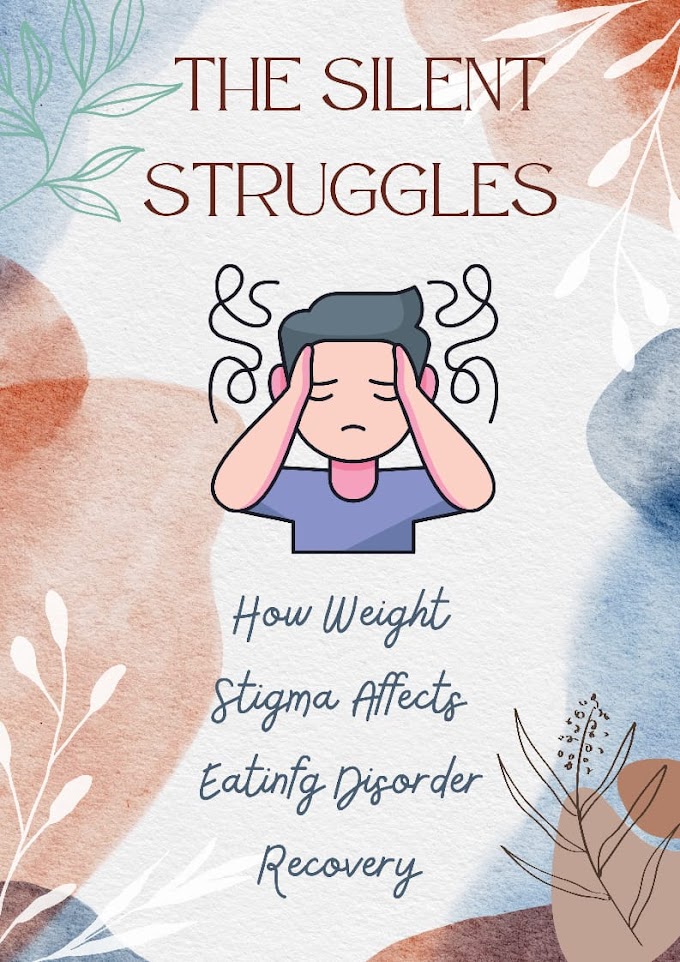In today’s image-conscious world, conversations around food, body weight, and beauty are common but sometimes, what seems “normal” on the surface may signal something deeper. Eating disorders are serious mental health conditions that affect how a person thinks about food, weight, and their body. Yet, many people suffer in silence, unsure whether their struggles are valid or worthy of help. This blog outlines the signs you shouldn’t ignore and why recognizing them early is crucial.
What Is
an Eating Disorder?
An eating
disorder is not just about food it’s a mental health condition where eating
behaviors become harmful and compulsive, often rooted in emotional distress,
perfectionism, or trauma. There are several types of eating disorders,
including:
- Anorexia Nervosa: Characterized by severe food
restriction, intense fear of gaining weight, and distorted
self-perception.
- Bulimia Nervosa: Involves cycles of binge
eating followed by purging through vomiting, excessive exercise, or
laxatives.
- Binge Eating Disorder – Repeated episodes of eating large amounts of food, often secretly and without control.
Common
Warning Signs
You may be
struggling with disordered eating if you notice these behaviors or thoughts:
1.
Constant Preoccupation with Food and Body
Spending a
large part of your day thinking about what you eat, how much you weigh, or how
you look can signal an unhealthy relationship with food.
2.
Skipping Meals or Eating in Secret
Avoiding
meals regularly or feeling ashamed to eat in front of others may indicate
underlying anxiety around food.
3.
Rigid Diet Rules and Guilt
Following
strict food rules (like no carbs, no sugar, only liquids) and feeling guilty
when you break them is a concerning pattern.
4.
Binge Eating
Regularly
eating large amounts of food in a short time even when not hungry can be a sign
of emotional eating or a binge cycle.
5.
Purging Behaviors
If you’re
trying to compensate for eating through vomiting, laxatives or intense
workouts, this is a red flag for serious mental and physical health risks.
6.
Distorted Body Image
No matter
what the mirror shows, feeling “too fat,” “not fit enough,” or “ugly” can
indicate body dysmorphia, often linked to eating disorders.
7.
Social Withdrawal or Mood Changes
Irritability, depression, or isolating yourself especially around food-related events may point to emotional distress caused by disordered eating.
Why
This Conversation Matters?
Eating disorders don’t always “look” a certain way. People of all sizes, genders, and ages can experience them. In many communities, talking about food, weight, or appearance is normalized making it harder to recognize when something is wrong. But untreated eating disorders can lead to serious physical complications, emotional pain, and even life-threatening situations.
What
You Can Do?
If any of
these signs resonate with you, here’s how you can take the first step:
- Acknowledge Your Feelings: Your experience is valid.
You don’t need to “look sick” to deserve help.
- Reach Out for Support: Talk to someone you trust a
friend, a teacher, a counselor and consider speaking to a mental health
professional.
- Avoid Self-Criticism: You are more than your body
or your eating habits. Recovery begins with self-compassion.
- Learn More: Educate yourself about eating disorders to better understand what you're going through.
Closing
Thoughts
Eating
disorders are not just phases, and they’re not about willpower. They are
serious but treatable conditions. If you’re struggling with food, body image,
or control, know that you are not alone and that healing is possible. The most
powerful step you can take is to recognize the signs and reach out. Recovery is
not linear, but every step forward counts.

.png)





0 Comments